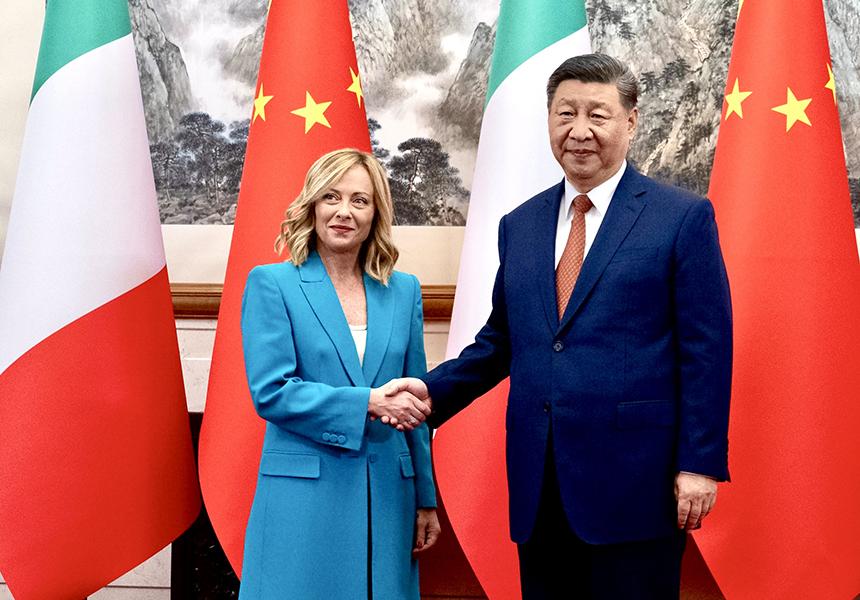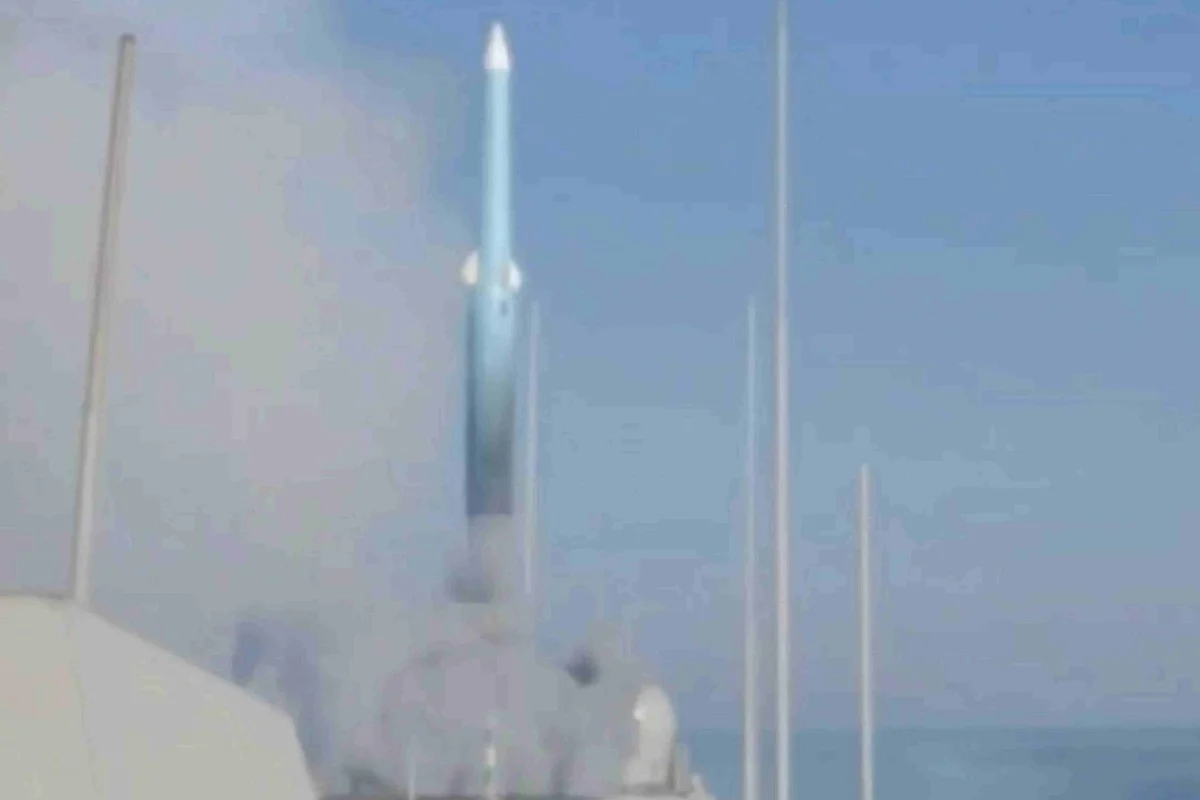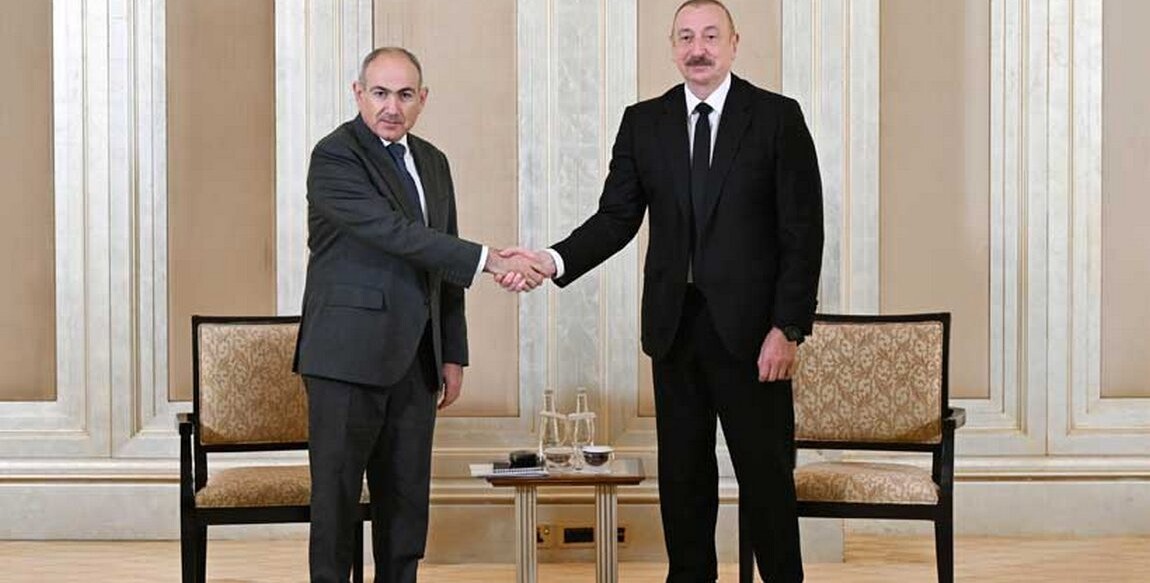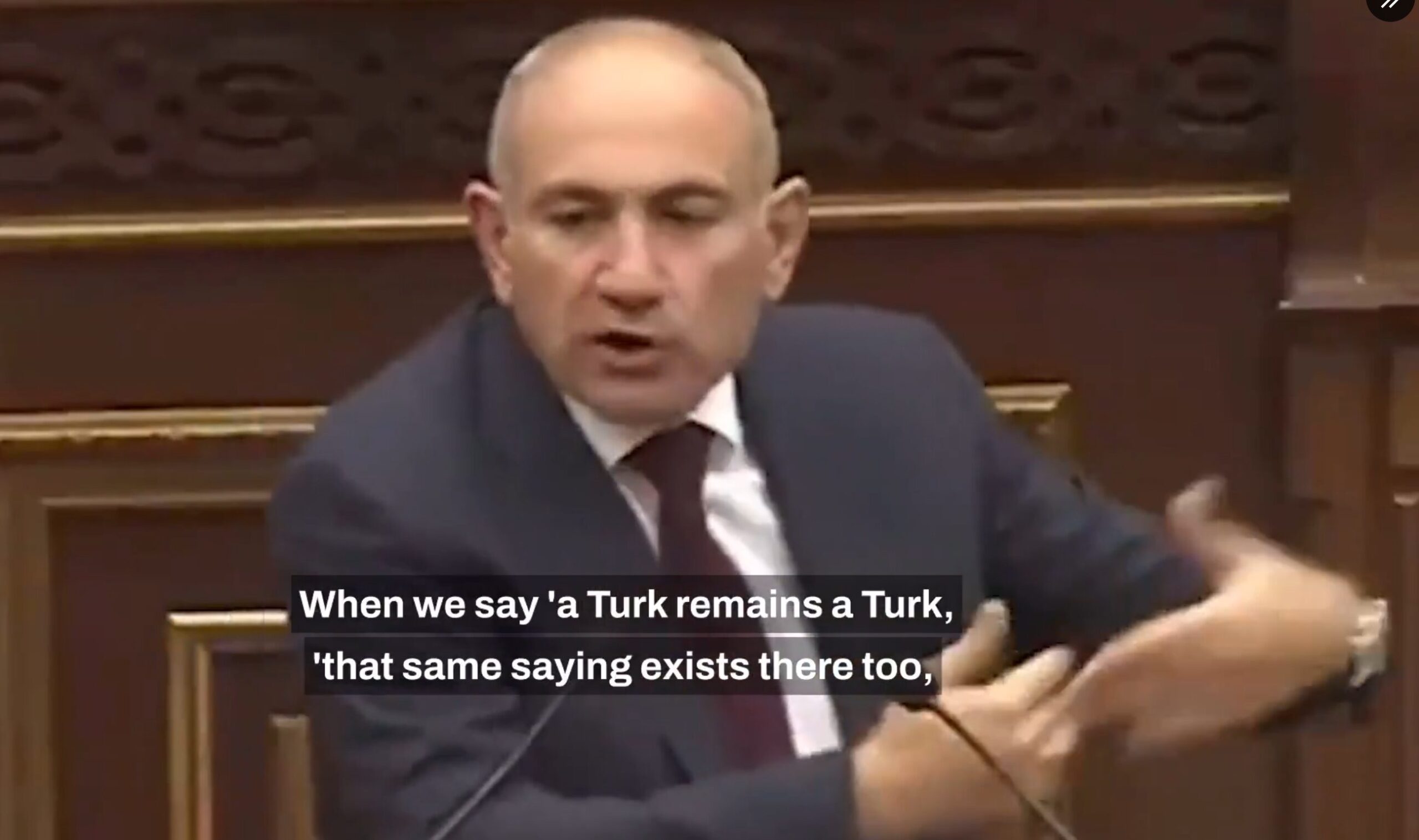Perhaps more than any other in recent years, Italy has chosen to walk a somewhat solitary path among its EU, NATO, and G7 comrades in preferring dialogue to power-bloc politics, highlighted in the extreme case of the recent announcement from Rome that official diplomatic relations will resume with Syria.
On top of this, President of the Council of Ministers Giorgia Meloni herself recently visited Beijing in what appears at least on the surface to be a climate of amiability and warmth.
Last year, Defense Secretary Guido Crosetto directly called for Ukraine and Russia to engage in a diplomatic solution to the war, involving compromise, as soon as possible, while Italy has resisted sending any significant weapons to the Ukraine warzone, underlying their commitment to minimizing conflict.
Italy was the only member of the G7 to join China’s Belt and Road Initiative, and despite withdrawing in 2023, the Meloni government insisted it desired to forge still-stronger trade relations.
President Xi Jinping, receiving Meloni in Beijing on Monday hailed “long-established, friendly” ties between Beijing and Rome, lauding that “both sides uphold tolerance, mutual trust, and mutual respect with each choosing its own development path”.
Trade wasn’t the only purpose of Meloni’s visit, as the Italian head of state described China as an “important interlocuter” in world affairs, who will inevitably play a role in world security affairs.
“There is growing insecurity at an international level, and I think that China is inevitably a very important interlocutor to address all these dynamics,” she told Xi personally.
“I think that Italy can also play an important role in relations with the European Union and here too the attempts to create trade relations that are as balanced as possible,” she said.
The European Union is currently considering implementing various barriers to trade, such as tariffs as high as 37.5.% on Chinese electric vehicles. There’s no doubt this would have been discussed, as Rome has signaled somewhat tacit approval for such measures.
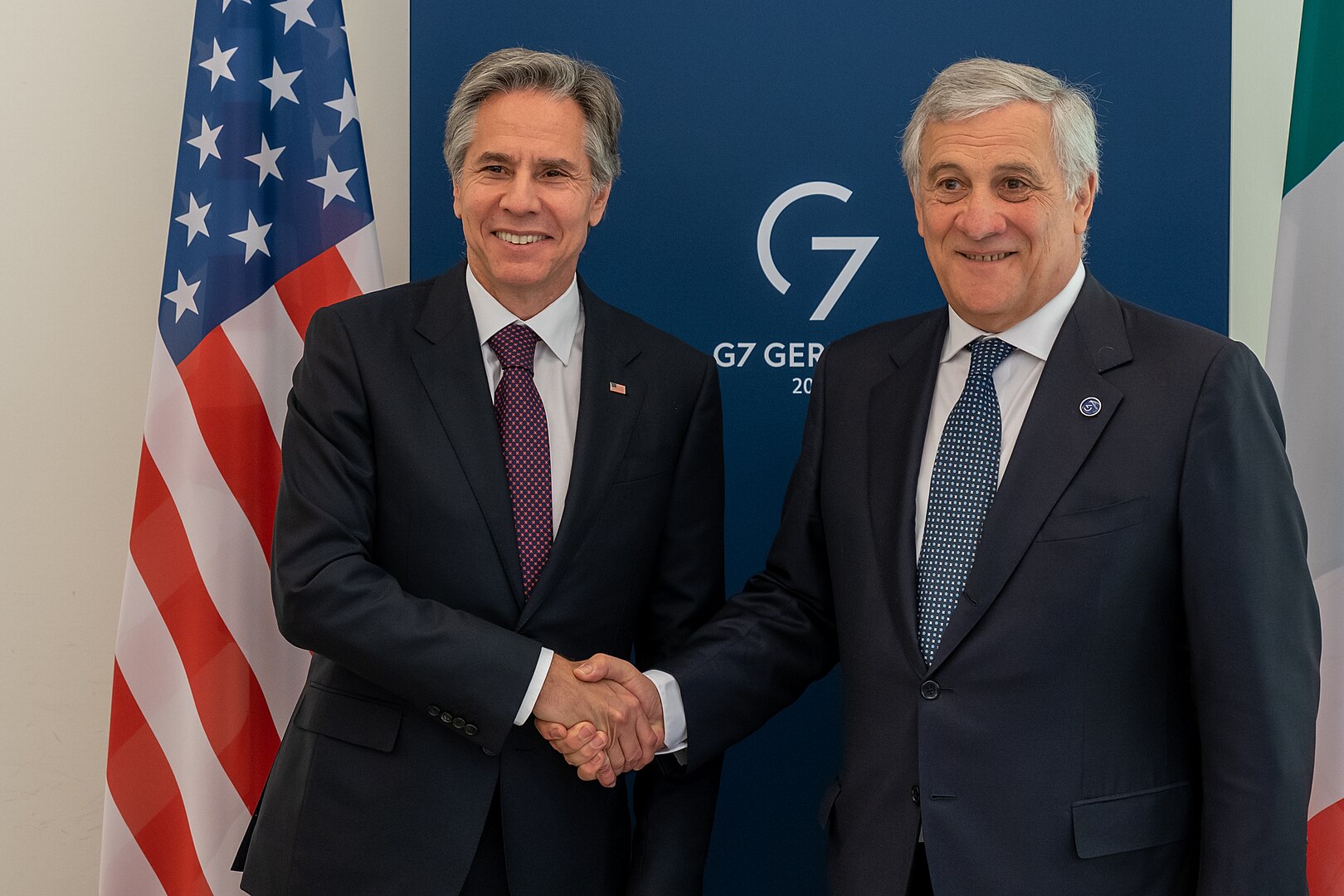
Lagging behind
In a recent statement, Italian Foreign Minister Antonio Tajani explained to lawmakers that his department was in the process of reopening diplomatic relations with Syria, a nation that the G7 and other EU members continue to treat as a pariah state at Washington’s behest.
Overshadowed by war and chaos in Gaza and Ukraine, Syria is ignored by the West, something Tajani described as a “strategic error”.
“Syria is still the origin of the largest refugee crisis in the world, with 13.8 million displaced internally or internationally,” Tajani wrote in a letter obtained by the Roman news outlet, Il Messaggero. “Meanwhile, Bashar al-Assad remains firmly in the saddle. Sustained by Russia and Iran, the Syrian regime has been able to consolidate power, retaking control of 70% of the country”.
“Our Arab partners in the region have recognized this unpleasant reality and have readmitted Syria to the Arab League. The strategic thought of the EU is lagging behind. After 13 years, we must admit that the approach of the EU has not kept pace with the evolution of the situation on the ground”.
“We ask therefore, that Assad demonstrate the appropriate flexibility in a process of reconciliation necessary to bring Syria back on the wagon,” Tajani wrote alongside Austria’s Minister for European Affairs Alexander Schallenberg, while noting later that the pair were receiving support and backing from Croatia, Cyprus, Czechia, Greece, Slovakia, and Slovenia.
There was something deliciously straightforward and candid about the statement, referring as it was to a country in Syria that has been blacklisted, starved, occupied, and ravaged by every tool in the United States’ arsenal short of all-out invasion. Recently, US officials stated plainly that the policy of the Biden Administration was that it “opposes Syrian reconstruction” which looked at from another side, means the policy is for Syria to remain unconstructed, in rubble and anarchy.
“Our objective is a policy more realistic, proactive, and effective—to augment our political influence,” wrote Tajani. “Maintaining the status quo while the situation in Syria and neighboring countries continues to deteriorate is not an option. We must finally bring Syria into the program of the EU as an absolute priority. If we do not do this, the consequences for the Syrian population, for the neighboring countries in the region, for our partners in the Mediterranean, and in the end, all of Europe, will be disastrous,” they conclude.
AP reported that the major impetus for the movement toward detente was countering Russia’s influence in the region, however, Tajani’s letter doesn’t mention Moscow.
WaL recently reported on the brutality of the US sanctions regime on Syria, and how the Biden Administration maintains several small garrisons of troops in the remote east and northeast of the country in order to occupy oil fields and stop Assad from accessing them. These include bases staffed by CIA-trained proxies who skirmish with (and retreated against) Iranian proxies.
This letter, representing the will of several rich industrialized nations, is the most significant update in Western Syrian policy in a decade, and in the wake of Assad’s readmittance to the Arab League and his invitation to Ankara for reconciliation with Turkiye, may be a sign that one of the worst covert wars in history is finally coming to an end. WaL
We Humbly Ask For Your Support—Follow the link here to see all the ways, monetary and non-monetary.
PICTURED ABOVE: Prime Minister Giorgia Meloni on the occasion of her recent visit to Beijing. PC: Governo.it
